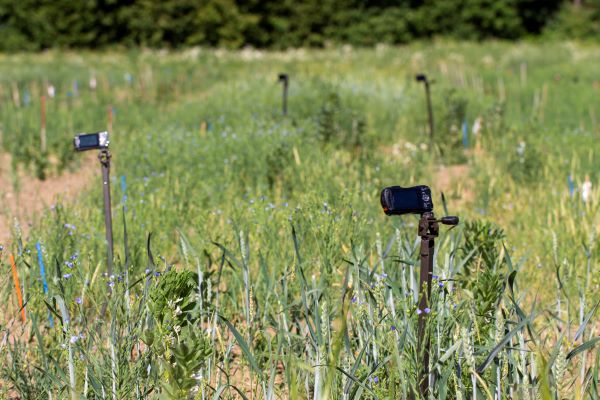New project “BioMonitor4CAP” to develop in-field biodiversity monitoring – European Union funding – results to offer guidance for policies – 23 international partners – ten countries and Peru
The DLG (German Agricultural Society) is one of 23 international partners that will jointly develop modern in-field monitoring systems for biodiversity as part of the four-year research project “BioMonitor4CAP”. Starting December 2022 and funded by the European Union’s Horizon Europe research and innovation program, the project contributes to preserving biodiversity through offering guidance for future policy-makers.
Coordinated by the Leibniz Institute for Biodiversity Change Analysis (LIB), the BioMonitor4CAP project will develop, evaluate and test affordable and reliable systems for monitoring biodiversity that can successfully be applied on agricultural land as well as on E.U.’s designated sites “Natura 2000”, which include specially protected areas for rare, endangered or vulnerable natural habitats and species of plants or animals.
Efficient and representative strategies are needed to monitor and visualize biodiversity loss or recovery over time as currently no such results-based monitoring of change exists. The results from the BioMonitor4CAP project are expected to assist the formulation of such effective strategies.
The project will combine classical biodiversity indicator systems with new technological approaches, including acoustic, optical and molecular systems.
“The aim of the project is to provide recommendations for adapted management practices and thus to strengthen biodiversity on farms internationally,” says Dr. Nils Borchard, Head of Research and Innovation, DLG’s Competence Center Agriculture.
The 23 international partners in the project originate from 10 E.U. countries and also Peru. The DLG will be responsible for setting up trial and demonstration fields as well as providing technical support. In addition, the DLG will take the lead in the international communication, distributing the project’s results and acquired knowledge.
“Such biodiversity monitoring systems will support the implementation of results-oriented policy guidelines and decisions for European agriculture,” says Professor Christoph Scherber, Coordinator of the project, at Leibniz Institute for Biodiversity Change Analysis (LIB).
The project, which supports the transformation of agriculture in Europe, will include relevant stakeholders like leading farmers, scientists and policy makers to ensure successful implementation of the newly developed monitoring systems.
With agriculture occupying around 50 percent of the E.U.’s land area, intensive farming is a key factor influencing habitats and biodiversity.
The E.U.’s 2030 Biodiversity and Farm-to-Fork Strategies aim to halt biodiversity loss while ensuring continuing to ensure that the needs of citizens are met.
Tackling climate change as one of its aims, Horizon Europe is E.U.’s key funding program for research and innovation.
Technical information: Martina Clausen, Project Manager, Research and Innovation, DLG, and Leader of work package 3 Validation and Demonstration, BioMonitor4CAP








